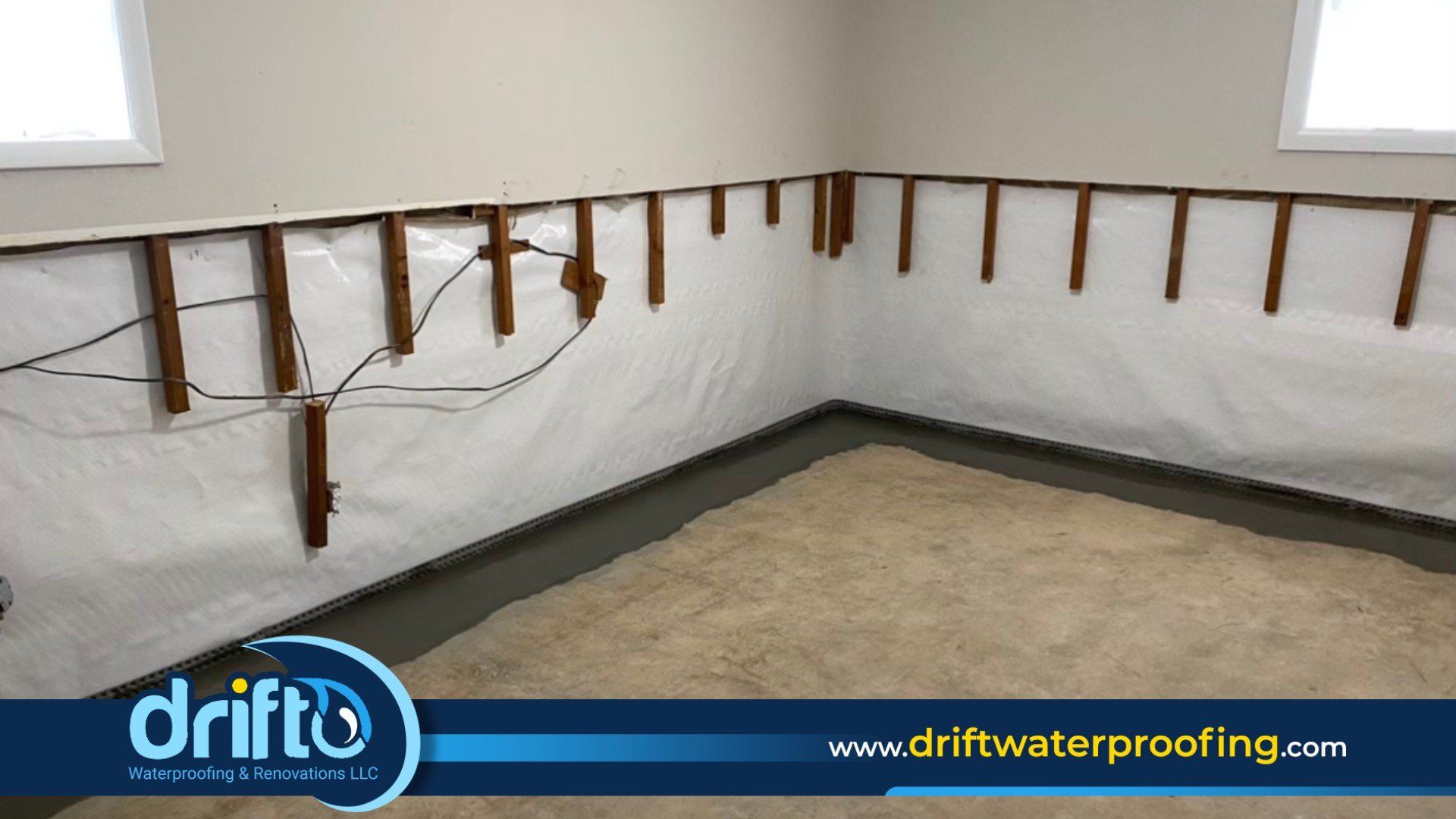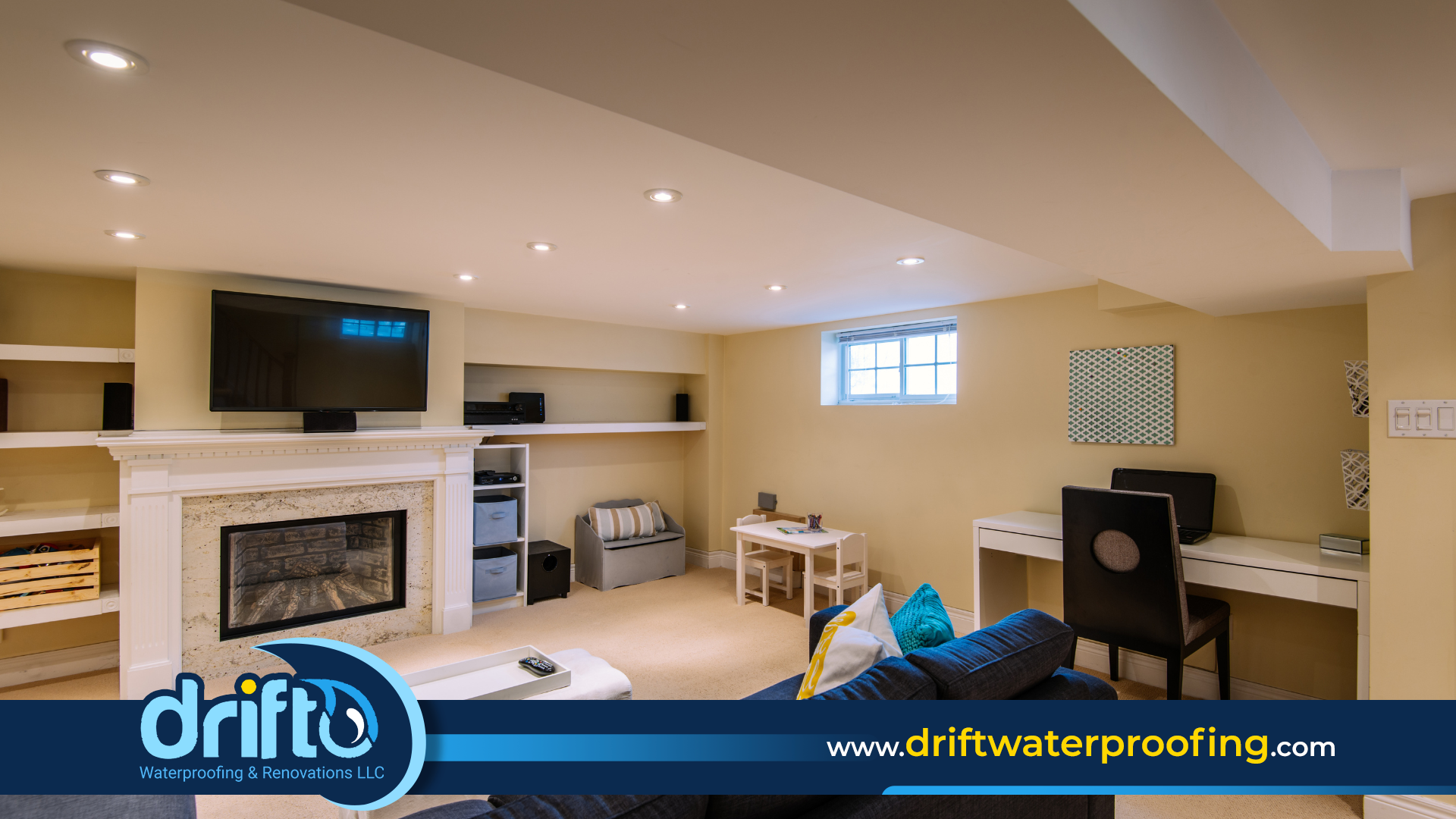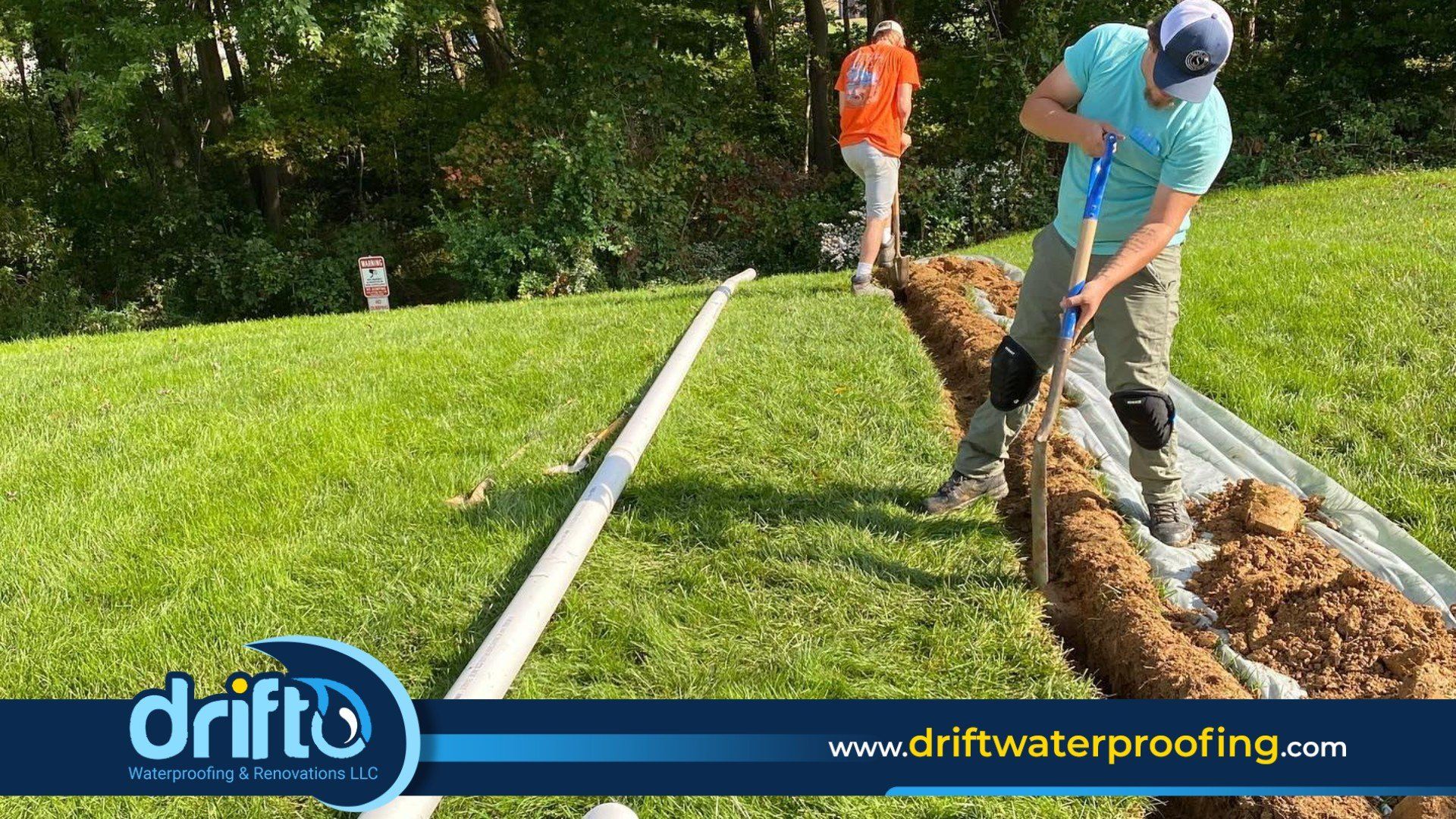If you own a home, chances are you’ve experienced a flooded basement at least once. While it can be a major nuisance, there are preventative steps you can take to waterproof your basement and keep it from flooding. Let’s dive into what you need to know about basement waterproofing and how to protect your home from flooding effectively.
The Benefits of Basement Waterproofing
Basement waterproofing is not only beneficial for preventing floods but also for keeping the air in your home free of mold and mildew. By doing so, you will improve the air quality in your home, making it healthier and safer for everyone living there. Furthermore, if mold and mildew are left untreated, they can cause damage to your walls, floors, furniture, carpets, and other belongings stored in the basement.
Basement waterproofing also helps protect against water damage that can occur when water seeps through foundation walls or accumulates around window wells or other sources. This type of damage can be costly if left untreated, as it can lead to structural issues with the foundation of your home. It’s important to address any potential signs of water damage as soon as possible before they worsen over time.
How To Effectively Waterproof Your Basement
The first step in effective basement waterproofing is identifying where the water is coming from. Most likely, it will be coming from outside sources, such as melted snow or rainwater that has seeped through cracks in the foundation or around windows and doors. Once you identify these sources, you can start taking actionable steps towards resolving them by sealing cracks with caulking or installing a sump pump system that will help divert surplus water away from the house until it can safely dissipate into the ground below. You should also consider installing gutter guards over your gutters so that excess rainwater does not leak down the sides of your house and into the basement area below. Additionally, having proper drainage systems installed around your foundation will help direct any excess water away from your house altogether.
What are some common causes of basement flooding?
Basement flooding can be an incredibly damaging and costly experience for any homeowner. If you have a basement, it’s important to understand the common causes of basement flooding so that you can prepare yourself and your home from potential flood damage. Here is a guide to understanding the common causes of basement flooding and how you can prevent it.
Common Causes of Basement Flooding
There are three main causes of basement flooding. The first is poor drainage around the foundation of your home, which can lead to water seeping into your basement through cracks in the walls or floor. Another common cause is clogged gutters or downspouts, which can cause water to back up and eventually overflow into your basement. Finally, heavy rainstorms can cause sudden floods when too much water collects at once in one area.
Prevention Tips
Now that you understand the most common causes of basement flooding, here are some tips on how you can prevent it from happening in your home. The first step is to ensure that there is adequate drainage around your foundation by checking for cracks and other openings where water might enter. If needed, hire a contractor to seal these gaps with hydraulic cement or waterproofing materials. Additionally, make sure all gutters and downspouts are clear of debris so that they won’t overflow during heavy rains. You might also consider installing a sump pump in your basement if there is not already one present; this will help keep excess water away from your foundation walls before it has a chance to seep in and cause flooding. Finally, if there has been recent construction near your home, check with local authorities about whether extra precautions need to be taken against potential floods caused by nearby building projects.
How can I tell if my basement is at risk for flooding?
Flooding can cause major damage to your home and property. One of the most vulnerable and dangerous areas in your house is the basement. If you live in an area that is prone to flooding, it’s important to take precautions to protect your basement from flooding. So how can you tell if your basement is at risk? Let’s explore some tips for understanding the threats posed by a flooded basement.
Basement Location
The first place to start when determining whether or not your basement is at risk for flood damage is its location. If you live in a low-lying area, near a river or lake, or in an area with heavy rainfall, then there’s a good chance that your basement could be at risk for flooding. Additionally, if your home is situated on top of a hill or slope, then water runoff from higher elevations may pool around your foundation and seep into your basement.
Groundwater Level
Another factor to consider when assessing the risk of flooding in your basement is the level of groundwater on and around your property. If you have ever noticed standing water around your foundation after heavy rainstorms, then this means that groundwater levels are high enough to threaten the integrity of your basement walls and floors. Furthermore, if water has already begun to seep into the cracks in your foundation walls, then this indicates an even greater risk of flooding due to high groundwater levels.
Drainage System
A well-designed drainage system can help keep excess water away from vulnerable areas of your home, such as basements and crawl spaces. It’s important to check the condition of any existing drainage systems on or near your property as well as make sure they are properly maintained throughout the year. If you don’t have any drainage systems around your home yet, then it might be time to invest in one; doing so will help reduce any potential risks posed by flooding significantly.
What are some steps I can take to prevent my basement from flooding?
Basement flooding can be both a costly and a stressful experience for homeowners. Thankfully, there are steps you can take to prevent it from happening in the first place. From waterproofing your walls to making sure your gutters are in good condition, there is a lot you can do to make sure your basement stays dry and free of flooding. Let’s look at some of the most effective strategies.
Gutter Maintenance
One of the best ways to prevent basement flooding is by properly maintaining your home’s gutters and downspouts. Clogged or damaged gutters can lead to excess water buildup near your home’s foundation, which will eventually lead to water seeping into your basement. To avoid this, make sure that your gutters are clear of debris and that they’re not damaged or leaking. You should also ensure that all of your downspouts are connected correctly so that water is directed away from the foundation of your home.
Sump Pump Installation
Another great way to prevent basement flooding is by installing a sump pump in your basement or crawlspace. Sump pumps are designed to collect any excess water that collects in these areas and pump it out before it has a chance to cause damage. Installing one is relatively simple; however, if you don’t feel comfortable with the task, it’s always better to hire a professional who knows what they’re doing. Foundation Inspections Finally, you should have the foundation of your home inspected on a regular basis for any signs of cracking or settling. If any issues are found, they should be addressed as soon as possible; otherwise, they could eventually lead to water seeping into the basement when it rains or snows heavily outside. It’s also important that you keep an eye out for any cracks in exterior walls or windows, as these, too, can allow water into the basement if left unchecked.
When should I call a professional to waterproof my basement?
A wet basement can be a major headache for homeowners. Not only does it create an unpleasant musty smell in your home, but it can also lead to structural damage and mold growth. So when should you call a professional to waterproof your basement? Let’s take a look at the signs that you need to waterproof your basement now.
Unpleasant Smells and Visible Moisture
One of the first signs of a wet basement is unpleasant odors coming from the area. These smells are usually caused by mold or mildew growth, both of which can be triggered by moisture buildup in the basement. If you notice any kind of strange odor coming from down there, then it’s time to have your basement professionally waterproofed.
Another sign is visible moisture on the walls, floors, or ceiling of your basement. This could be water seeping through cracks in the foundation or condensation collecting on cold surfaces like pipes and ductwork. If you spot any moisture in your basement, then you should definitely call a professional right away before things get worse.
Flooding
If you’ve experienced flooding in your basement, then this is a definite sign that it needs to be professionally waterproofed as soon as possible. Flooding can cause extensive damage to your home’s structure and furnishings if not properly addressed quickly. Plus, if left untreated for too long, floodwaters can become contaminated with sewage or other hazardous materials, putting everyone in the house at risk for serious health issues such as infections and respiratory problems.
How much does it cost to waterproof a basement?
Basement waterproofing is an important part of maintaining a safe and healthy home. Water seeping into a basement can lead to mold, rot, and structural damage that can be expensive to repair. So, how much does it cost to waterproof a basement? The answer depends on the size of your basement, the type of materials used, and the complexity of the job. Let’s break down all the factors that go into determining a basement waterproofing cost estimate.
Size Matters
The first factor in determining how much it will cost to waterproof your basement is its size. If you have a large basement with multiple levels or a number of corners and alcoves, then you can expect the project to cost more than if you have a simple rectangular-shaped space. Generally speaking, larger basements will require more effort—and more materials—to be fully waterproof than smaller basements.
Material Costs
The type of materials used in your project also plays an important role in determining the total cost of waterproofing your basement. For example, if you use higher-end products such as epoxy coatings or membrane systems, then you should expect to pay more than if you opt for less expensive methods like paint sealants or plastic sheeting. It's also important to consider any additional costs associated with the disposal or removal of existing materials before beginning work on your project.
The Complexity of Your Project
Lastly, there are certain factors that can affect the overall complexity—and thus cost—of your project. For instance, if your home is situated in an area prone to flooding or if there are tree roots growing near the foundation walls, then these issues must be addressed before waterproofing begins. Additionally, if there are multiple entry points for water into your basement (like windows or vents), then extra measures may need to be taken to ensure that these areas are properly sealed off from water infiltration. All these things need to be taken into account when figuring out how much it will cost to waterproof your basement.
Will waterproofing my basement guarantee that it will never flood again?
Waterproofing your basement is one of the best ways to prevent flooding and water damage in your home. But will it guarantee that you won’t have to worry about a flooded basement ever again? Let’s explore how waterproofing works and if it’s enough to keep your basement dry for many years to come.
What is Basement Waterproofing?
Basement waterproofing is the process of preventing water from entering your home through the foundation walls and floor. This can be done by sealing all cracks or holes in the foundation walls and floors or, in more extreme cases, installing a sump pump or French drain system. This process helps ensure that any water that accumulates around the foundation of your home will be diverted away from your basement and towards other areas, such as storm sewers or drainage systems.
Even with a well-sealed foundation, there are still risks of flooding due to heavy rains or snowmelt that could overwhelm the capacity of gutters and drainage systems. Additionally, there are also certain situations where water may enter through windows or doorways even if they are sealed properly. Therefore, while waterproofing can reduce the risk of flooding significantly, it cannot guarantee that you won’t experience flooding in your basement again.
What Else Can I Do To Protect My Home From Flood Damage?
In addition to waterproofing your basement, there are several other steps you can take to protect your home from flood damage. Installing a sump pump is one way to help ensure that any groundwater around your foundation is quickly pumped away from the house before it has a chance to enter through cracks in the foundation walls or floors. Additionally, making sure all doors and windows are properly sealed is another way to reduce the risk of water entering through these openings during heavy rainstorms or snowmelt events. Finally, installing backflow preventers on drains throughout your home can help ensure that sewage lines do not back up into your house during periods of heavy rain and cause unwanted flooding inside as well.
What should I do if my basement flood?
Basements flooding is a common problem that homeowners can face, especially during heavy rain or snow. If your basement has recently flooded, it’s important to take the right steps in order to keep yourself and your home safe. Here are some tips on what you should do if your basement floods.
Step 1: Shut off the electricity and gas. Flooding can cause serious damage to electrical outlets, appliances, and wiring in your home, so it’s essential to shut off the power before attempting any cleanup. If you’re unsure how to do this safely, contact an electrician or a professional flood specialist for help.
Step 2: Remove items from the flooded area as quickly as possible. This includes furniture, appliances, electronics, and anything else that may be damaged by water or mold growth. It’s also important to remove any carpets or rugs that have been exposed to water in order to prevent further damage.
Step 3: Clean up the water using wet/dry vacuums or dehumidifiers. This is one of the most important steps when dealing with flood damage in your basement, as it will help prevent mold and mildew growth in the affected area. Make sure that all surfaces are thoroughly dried before moving on to the next step of repair and restoration.
Call Us Now for an Excellent Basement Waterproofing!
Basement flooding can be a major hassle for homeowners, but taking the right steps can help minimize the damage caused by water and help protect your home from further harm down the line. Be sure to shut off electricity and gas before attempting any cleanup, remove items from the flooded area as soon as possible, and clean up all standing water using wet/dry vacuums or dehumidifiers before proceeding with any repairs or restoration work. With these tips in mind, you can keep your basement –and your home– safe from flood damage!
Contact Drift Waterproofing & Renovations Today!
Drift Waterproofing & Renovations will do everything we can to ensure your experience with us is excellent.
Request A FREE Estimate
Request a Free Estimate Form
We will get back to you as soon as possible.
Please try again later.
Checkout Recent Post
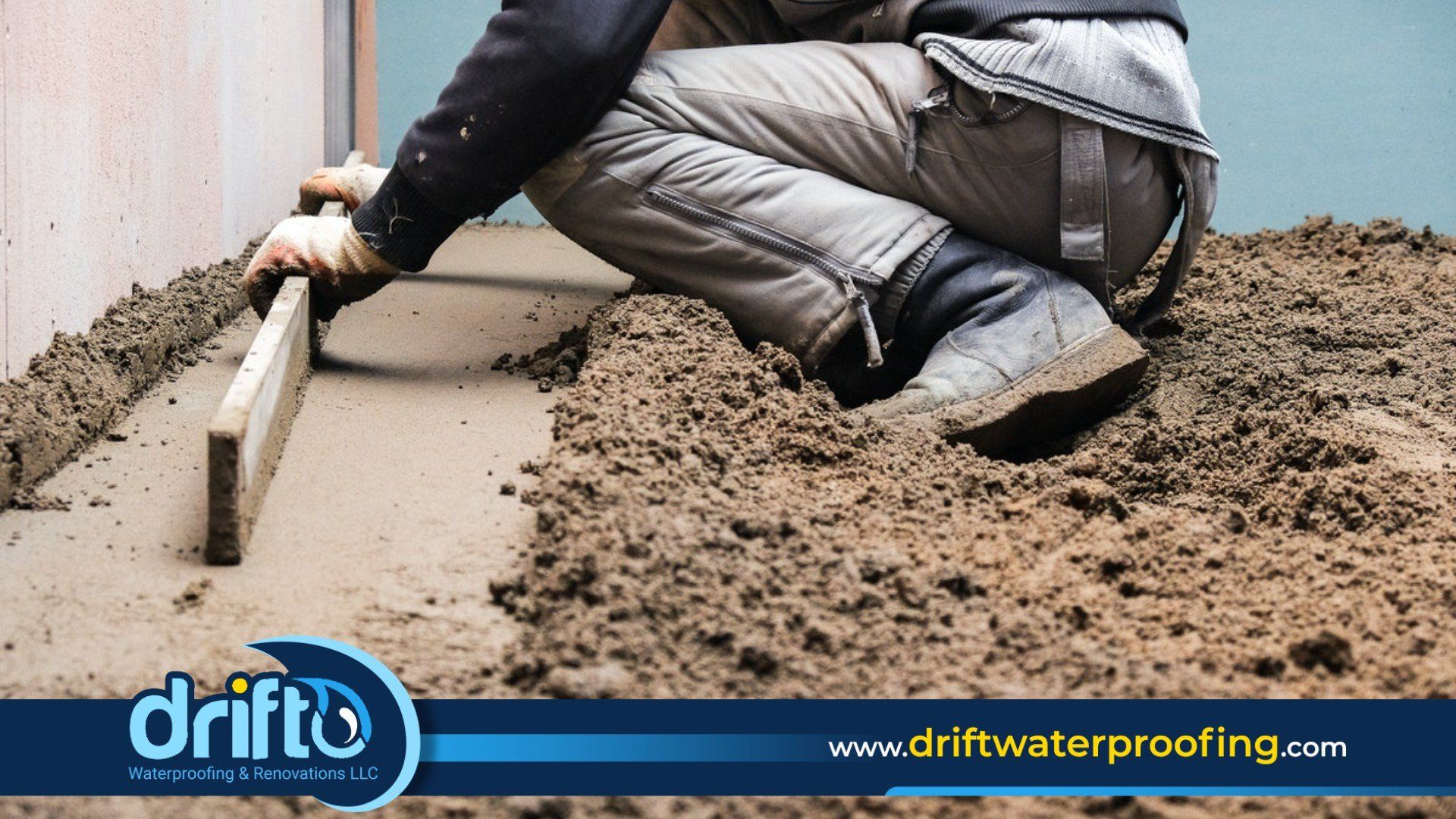
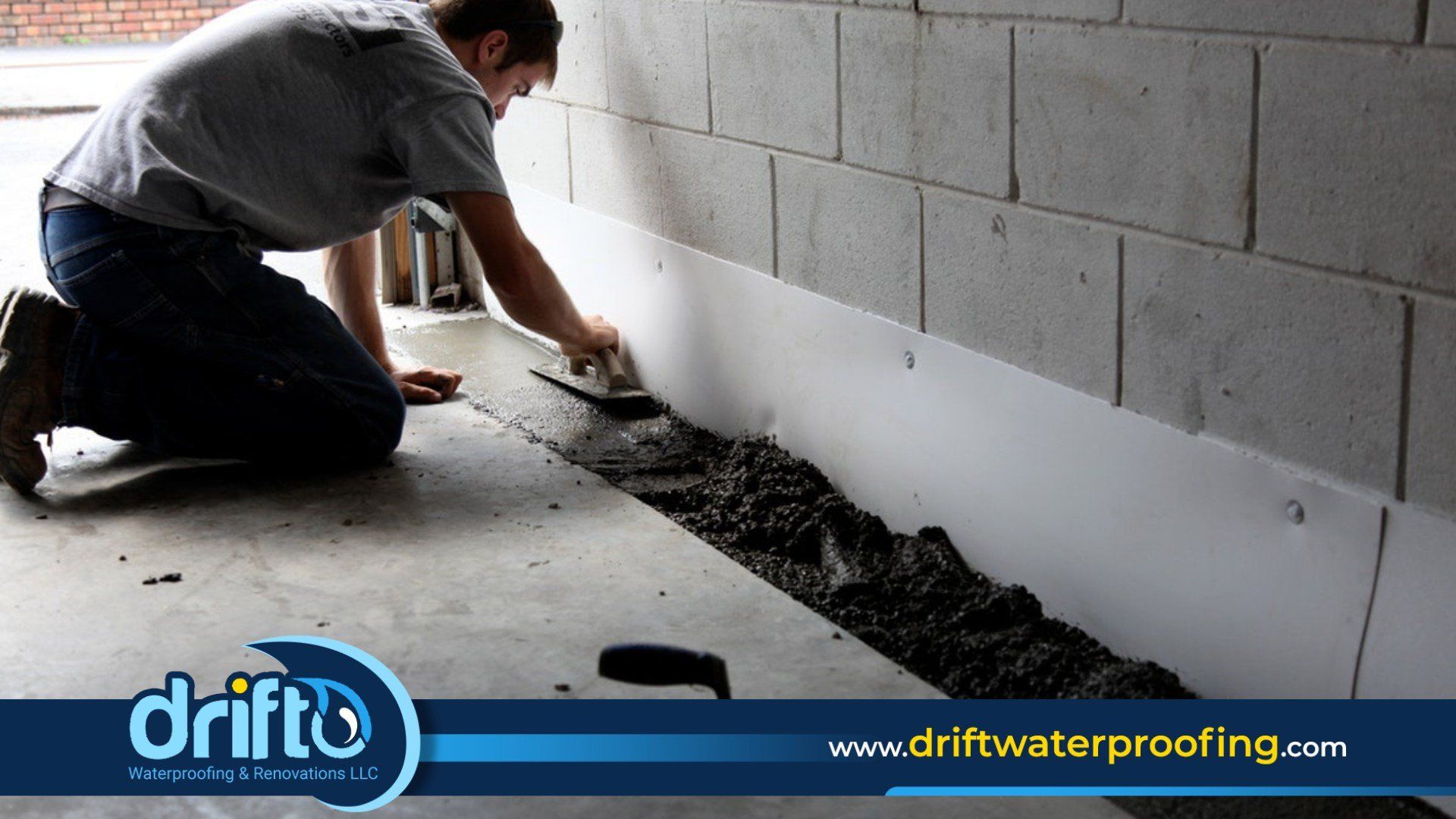
Got a Question? We’re Here to Help.
You can arrange an appointment or make an enquiry by phone or email, orget in touch to us via our contact form.
All Rights Reserved | Drift Waterproofing & Renovations
Fully Licensed and Insured MHIC #110033 | Privacy Policy | Terms & Conditions | Sitemap

